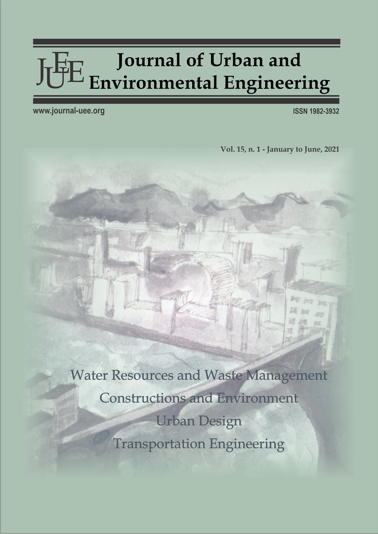FEASIBILITY OF LOW-CARBON PERMEABLE PAVEMENT SYSTEMS (PPS) FOR STORMWATER MANAGEMENT
DOI:
https://doi.org/10.4090/juee.2021.v15n1.24-41Abstract
The sharp increase in the utilisation and demand of construction materials across the world, especially in road, pavements and transportation sectors has resulted in an unsustainable surge in the amount of carbon emissions. This study investigated the use of low-carbon materials in permeable pavements systems (PPS) and the effects of various low-carbon engineered materials on the mechanical, absorption and infiltration performance of PPS according to relevant standards. This was achieved by the critical analysis of four (4) different materials (recycled grit, recycled glass, recycled rubber) and comparing their performance with normal materials used in conventional pavements. The four materials were implemented into concrete mixes of the permeable pavers and embedded in various layers and sub-sections making up the permeable pavement structure. As a result, the outcome required of this research is to find which mix of concrete blocks (permeable pavers) perform the best when tested for absorption and compression and which permeable pavement works best when tested for infiltration. Compression test was utilised to establish the maximum allowable compressive force, while the absorption test identified the concrete mix that could hold the least amount of water when soaked in water for 24 hours. This was expected to reduce the possibility of breakage of the concrete blocks. Finally, the infiltration test was employed to establish the best performing pavement material based on the rate and amount of infiltration of a fixed volume of effluent. The results obtained from the laboratory tests shows improved performances of the pavements embedded with recycled materials. Therefore, it can be recommended that the use of recycled materials in the development of low-carbon permeable pavements, possesses the ability to perform efficiently in comparison with conventional PPS in the construction and built environment sectors.Downloads
Download data is not yet available.
Downloads
Published
2021-04-09
Issue
Section
Articles




